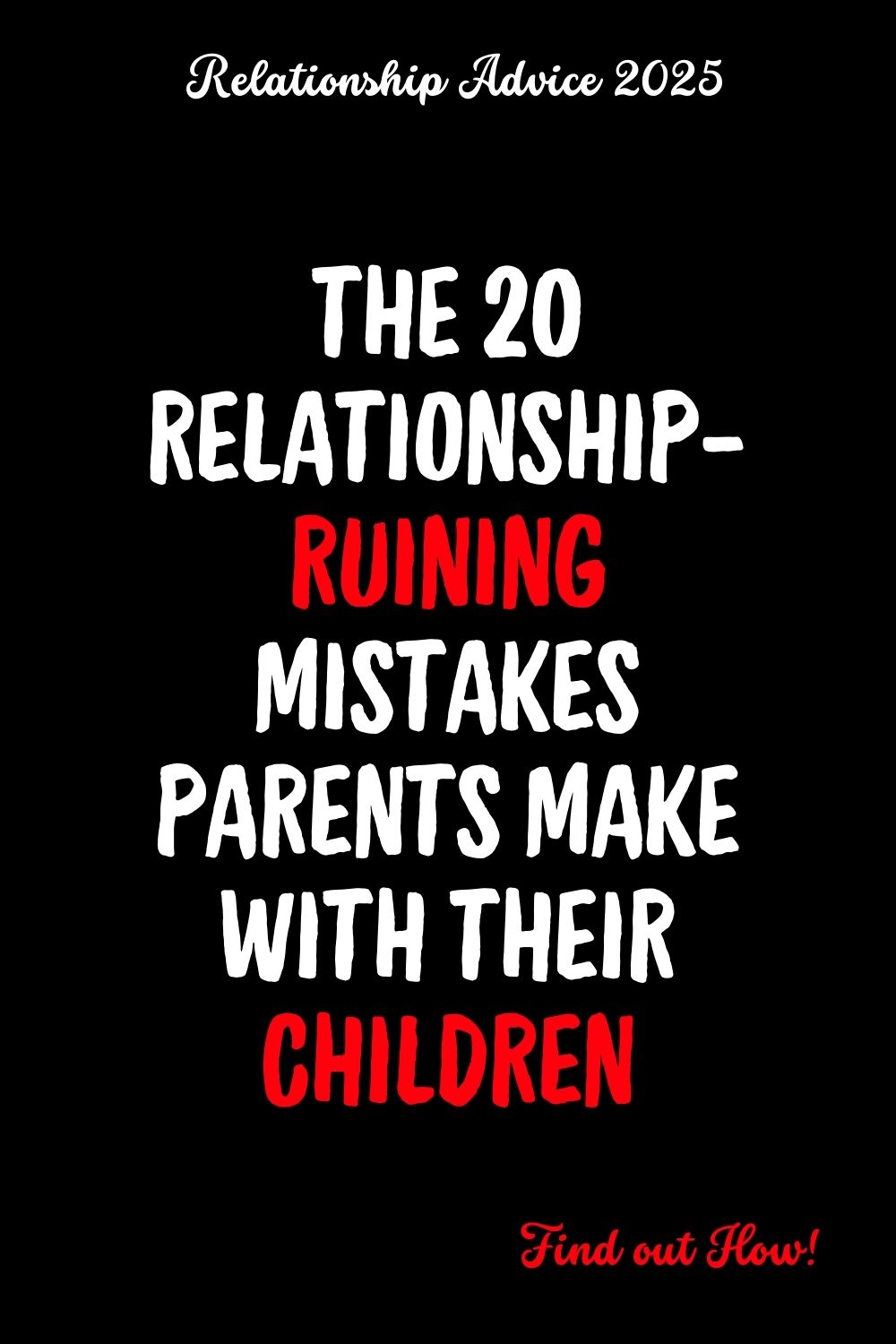Love, trust, and communication are the foundation of a healthy parent-child bond. But even the best-meaning parents can unintentionally make blunders that weaken this important relationship. Here are 20 common mistakes parents make with their kids that can harm their connection, along with tips on how to avoid them.
1. Not Paying Attention to How They Feel
A youngster may feel ignored and unimportant if their feelings are dismissed or not given enough consideration. Establishing trust requires validation.
2. Excessive Criticism
A child’s self-esteem can be harmed by constant criticism. Encourage them and offer constructive criticism rather than concentrating on their shortcomings.
3. Making Comparisons to Others
A sibling, friend, or other youngster may feel inadequate and unworthy as a result of frequent comparisons.
4. Not Saying Sorry When I’m Wrong
Even parents make mistakes. Children learn that accountability is unimportant when parents fail to apologize, which can damage relationships in the future.
5. Making unrealistic demands
Children who are pressured to excel in behavior, athletics, or academics may develop anxiety and dread of failing.
6. Disregarding Their Passions
They may believe that their uniqueness is worthless if their interests or emotions are dismissed as unimportant.
7. Excessive Control
Micromanaging every part of their lives keeps kids from becoming independent and capable of making their own decisions.
8. Absence of Love
Youngsters must experience love. They may feel emotionally abandoned if they are not given hugs, encouraging words, or deeds.
9. Discrediting Their Battles
They may feel alone and be reluctant to express their emotions in the future if you tell them that their troubles are “not a big deal.”
10. Rewarding with Love
Love needs to be provided without conditions, not just when a child performs well or fulfills expectations.
11. Ignoring Their Limitations
Trust can be harmed by disregarding their desire for privacy or by making decisions for them without consulting them.
12. Not Making Time for Each Other
Youngsters yearn for connection and attention. Quality family time shouldn’t be sacrificed for a hectic agenda.
13. Excessive Reaction to Errors
A child may become nervous, reticent to try new activities, or secretive if they are too scared to fail.
14. Not Setting an Example
Parents teach their children more by their actions than by their words. Parents’ words don’t mean much if they don’t act morally themselves.
15. Disregarding the rules and discipline
Children become confused and may become resentful if rules are changed frequently or enforced in an unpredictable manner.
16. Ignoring What They Say
They may feel helpless and unappreciated if you make all of the decisions for them without taking into account their opinions.
17. Protecting Them Too Much
Children cannot develop resilience and problem-solving abilities if they are shielded from all adversity.
18. Making a Weapon Out of Guilt
Making kids feel bad about their decisions or feelings might lead to emotional problems in the long run.
19. Not Encouraging Their Dreams
Children’s confidence and self-belief may suffer if their parents reject or discourage their goals.
20. Not Expressing Enough “I Love You”
It’s important to let kids know they are loved. Frequent displays of affection and gratitude improve the relationship between parents and children.
Being a parent is about being present, empathetic, and open to change, not about being flawless. Parents can create a loving, sustaining, and enduring bond with their children by avoiding these typical blunders.





